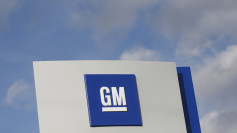Ford Motor Company will build a $185 million battery lab to develop and produce battery cells and batteries, as a first step toward the automaker potentially manufacturing battery cells in-house.
The facility, called the Ford Ion Park, is yet another indication to buyers and other automakers that the automaker is no longer hedging its bets on the switch to battery electric vehicles.
"It's really for us to develop that expertise and competency in-house and give us that flexibility in the future," Hau Thai-Tang, Ford's chief platform and operations officer, said. "So stay tuned."
The Ford Ion Park will be headquartered in southeast Michigan and will employ over 150 people working in battery technology development, research, and manufacturing. The building is reportedly 200,000 square feet and will open at the end of 2022.
Ford's batteries benchmarking research laboratories in nearby Allen Park, Michigan, which is already researching battery cell construction and chemistries, will provide support for the plant. Ford's product development center in Dearborn is also nearby, as is Ford's battery cell assembly and e-motor plant in Rossville.
Anand Sankaran, the company's current director of electrified systems engineering, will head the Ford Ion Park. He described it as a "learning lab" for designing "lab-scale and pilot-scale cell assembly," including next-generation lithium-ion and solid-state batteries.
Ford, which is still in the early stages of its electric vehicle transition, has stated that it intends to invest $22 billion on the transition, including $7 billion in autonomous vehicles, through 2025. The majority of the vehicles it intends to produce will be battery-electric, but it also has hybrid and plug-in hybrid models with traditional internal combustion engines.
Despite some initial hiccups with software upgrades, Ford successfully shipped its first long-range EV, the Mustang Mach-E. It also debuted an all-electric Transit van last year and intends to reveal an electric version of its best-selling F-150 pickup truck later this year.
Ford executives refused to disclose a timetable for when the company plans to scale up its battery production, but it is clear that this facility is intended to lay the groundwork for such a future.






